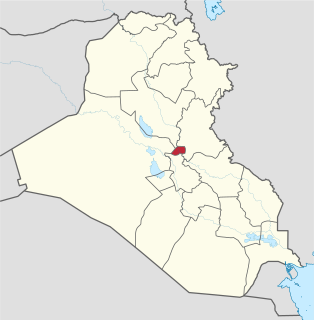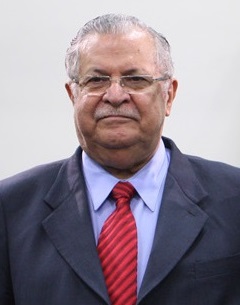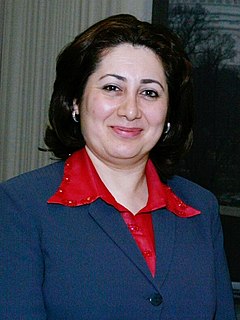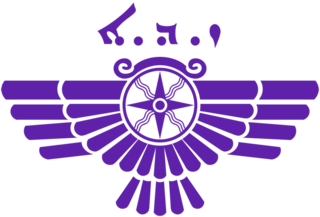K
| | This section is empty.You can help by adding to it.(July 2010) |
Articles (arranged alphabetically) related to Iraq include:
| | This section is empty.You can help by adding to it.(July 2010) |
| | This section is empty.You can help by adding to it.(July 2010) |
| | This section is empty.You can help by adding to it.(July 2010) |
| | This section is empty.You can help by adding to it.(July 2010) |
| | This section is empty.You can help by adding to it.(July 2010) |
| | This section is empty.You can help by adding to it.(July 2010) |
| | This section is empty.You can help by adding to it.(July 2010) |
| | This section is empty.You can help by adding to it.(July 2010) |

Baghdad is the capital of Iraq and one of the largest cities in the Arab world, and compared to its large population it has a small area at just 673 square kilometers. Located along the Tigris, near the ruins of the Akkadian city of Babylon and the ancient Iranian capital of Ctesiphon, Baghdad was founded in the 8th century and became the capital of the Abbasid Caliphate. Within a short time, Baghdad evolved into a significant cultural, commercial, and intellectual center of the Muslim world. This, in addition to housing several key academic institutions, including the House of Wisdom, as well as hosting a multiethnic and multireligious environment, garnered the city a worldwide reputation as the "Centre of Learning".
The politics of Iraq take place in a framework of a federal parliamentary representative democratic republic. It is a multi-party system whereby the executive power is exercised by the Prime Minister of the Council of Ministers as the head of government, as well as the President of Iraq, and legislative power is vested in the Council of Representatives and the Federation Council.

The Patriotic Union of Kurdistan is a Kurdish nationalist political party in Iraqi Kurdistan. The PUK describes its goals as self-determination, human rights, democracy and peace for the Kurdish people of Kurdistan and Iraq. The PUK is currently under the leadership of co-presidents Lahur Talabany and Bafel Talabani. The PUK was founded in 1975 by Jalal Talabani, Nawshirwan Mustafa, Fuad Masum, Adel Murad, Ali Askari and Abdul Razaq Feyli.

Baghdad Governorate, also known as the Baghdad Province, is the capital governorate of Iraq. It includes the capital Baghdad as well as the surrounding metropolitan area. The governorate is the smallest of the 19 provinces of Iraq but the most populous.

The Iraqi Governing Council (IGC) was the provisional government of Iraq from July 13, 2003 to June 1, 2004. It was established by and served under the United States-led Coalition Provisional Authority (CPA). The IGC consisted of various Iraqi political and tribal leaders who were appointed by the CPA to provide advice and leadership of the country until the June 2004 transfer of sovereignty to the Iraqi Interim Government.

The Canal Hotel bombing was a suicide truck bombing in Baghdad, Iraq, in the afternoon of August 19, 2003. It killed 22 people, including the United Nations' Special Representative in Iraq Sérgio Vieira de Mello, and wounded over 100, including human rights lawyer and political activist Dr. Amin Mekki Medani. The blast targeted the United Nations Assistance Mission in Iraq created just five days earlier. The 19 August bombing resulted in the withdrawal within weeks of most of the 600 UN staff members from Iraq. These events were to have a profound and lasting impact on the UN's security practices globally.

Jalal Talabani was an Iraqi Kurdish politician who served as the sixth President of Iraq from 2006 to 2014, as well as the President of the Governing Council of Iraq. He was the first non-Arab president of Iraq. He is known as Mam Jalal amongst the Kurds.

Nisrin Barwari is an Iraqi Kurd politician who acted as Iraqi Minister for Municipalities and Public Works following the US occupation of Iraq in 2003.

The Council of Representatives is the unicameral legislature of the Republic of Iraq. As of 2020, it comprises 329 seats and meets in Baghdad inside the Green Zone.

The Assyrian Democratic Movement, popularly known as Zowaa, is an Assyrian political party situated in Iraq, and one of the main Assyrian parties within the Iraqi parliament. The Assyrian Democratic Movement states its aims are to establish equal citizenship rights with the rest of the Iraqi people without discrimination on the basis of nationality, belief, religious affiliation, culture, linguistics and other characteristics of the native Chaldo-Assyrian Syriac people of Iraq, to acknowledge the past massacres committed against them and to ensure they are never repeated again.
The Central Bank of Iraq (CBI) is the central bank of Iraq.
The Constitution of the Republic of Iraq is the fundamental law of Iraq. The first constitution came into force in 1925. The current constitution was adopted on September 18, 2005 by the Transitional National Assembly of Iraq, and confirmed by constitutional referendum, held on October 15, 2005. It was published on December 28, 2005 in the Official Gazette of Iraq, in Arabic original, and thus came into force. Official translation for international use was produced in cooperation between Iraqi state authorities and the United Nation's Office for Constitutional Support. Since 2006, several proposals for adoption of various constitutional amendments were initiated.
The 1975 Algiers Agreement was an agreement between Iran and Iraq to settle any disputes and conflicts concerning their common border, and it served as basis for the bilateral treaties signed on 13 June and 26 December 1975. The agreement was intended to end disagreement between Iraq and Iran on their borders on the Shatt al-Arab waterway and in Khuzestan, but Iraq also wished to end the Kurdish rebellion. Less than six years after signing the treaty, on 17 September 1980, Iraq abrogated the treaty but under international law, one nation cannot unilaterally withdraw from a previously ratified treaty, and the treaty did not include a clause providing for unilateral withdrawal.
Wijdan Michael Salim is a former Minister of Human Rights in Iraq and currently advisor for development and service for the Prime Minister's Office. She made history by being a woman involved in the crafting of the 2005 Constitution of Iraq.

On 12 April 2007, the canteen of the Council of Representatives of Iraq building was attacked by a suicide bomber, killing one to eight people and wounding 23 others. The attack, in the heavily fortified Green Zone of Baghdad, occurred ten minutes after the Council of Representatives had adjourned for lunch. It was on the first floor of the Baghdad Convention Center, which houses the parliament. Two further unexploded suicide vests were found near the canteen. The building had earlier been searched by dogs – very rare considering dogs are considered ritually unclean by Iraqis – suggesting the authorities suspected an attack was imminent. Following the attack the government closed down mobile phone networks and Apache helicopters flew overhead.

There are nine administrative districts in the city of Baghdad, the capital of Iraq, that correspond to the nine district advisory councils. The Baghdad Security Plan used these nine districts as the nine security districts. These were formed in 2003 following the 2003 Invasion of Iraq. District council members are selected from the 89 Neighborhood Advisory Councils in Baghdad. The number of neighbourhood representatives on the district council is based upon the community's population. The Baghdad City Advisory Council consists of 37 members drawn from the district councils and is also based on the district's population.
Maysoon Salem Al-Damluji ; born 1962) first name also spelt Maysun, is a liberal Iraqi politician and women's rights campaigner. She was Iraq's deputy minister of culture from June 2004 until March 2006 and is a member of the Council of Representatives for the Al-Wataniya national coalition, headed by former Prime Minister and Vice President Iyad Allawi. Al-Damluji is the president of the Iraqi Independent Women's Group (IIWG). Her brother, Omar Al-Farouq Al-Damluji, was Iraq's minister of housing in 2004-5. Her nephew, Hassan Al-Damluji, is a British-Iraqi development strategist.

The following outline is provided as an overview of and topical guide to Iraq:
Al-Wathbah uprising or simply Al-Wathbah, which means The Leap in Arabic, was the term that came to be used for the urban unrest in Baghdad in January 1948. The protests were sparked by the monarchy's plans to renew the 1930 Anglo-Iraqi Treaty that effectively made Iraq a British protectorate. Nuri al-Said, the Prime Minister of Iraq, was planning on renewing, albeit in a revised form, this 1930 treaty that tied Iraq to British interests, allowed for the unrestricted movement of British troops on Iraqi soil, and provided significant protection to the British-installed Iraqi monarchy.

Dr. Mohamed Ali Alhakim is an Iraqi politician and diplomat. He was the foreign minister of Iraq from October 25, 2018 to May 12, 2020 in the government of Prime Minister Adel Abdel Mahdi. He is the former Permanent Representative of Iraq to the United Nations Office at Geneva and New York.